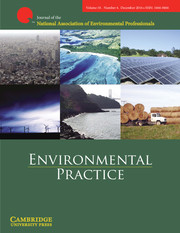Article contents
us versus them: how identities and characterizations influence conflict
Published online by Cambridge University Press: 22 September 2005
Abstract
“evil–doers.” this memorable and provocative characterization of america's terrorist enemy was cast by president george w. bush in a stirring speech to a joint session of congress in september 2001, a few days after the horrific attacks of september 11th. “evil–doers” is a very vivid and negative characterization of a group of people and, not surprisingly, it impassioned the american people. by condemning the “evil–doers” and then issuing the threat to all others that “either you are with us, or you are with the terrorists” (bush, 2001), president bush drew a line in the sand between “us” and “them.” in so doing, he provided a timely and classic example of how the framing of identities and characterizations establishes the boundaries, dimensions, and intensity of a conflict.
- Type
- Research Article
- Information
- Copyright
- 2003 national association of environmental professionals
- 12
- Cited by




